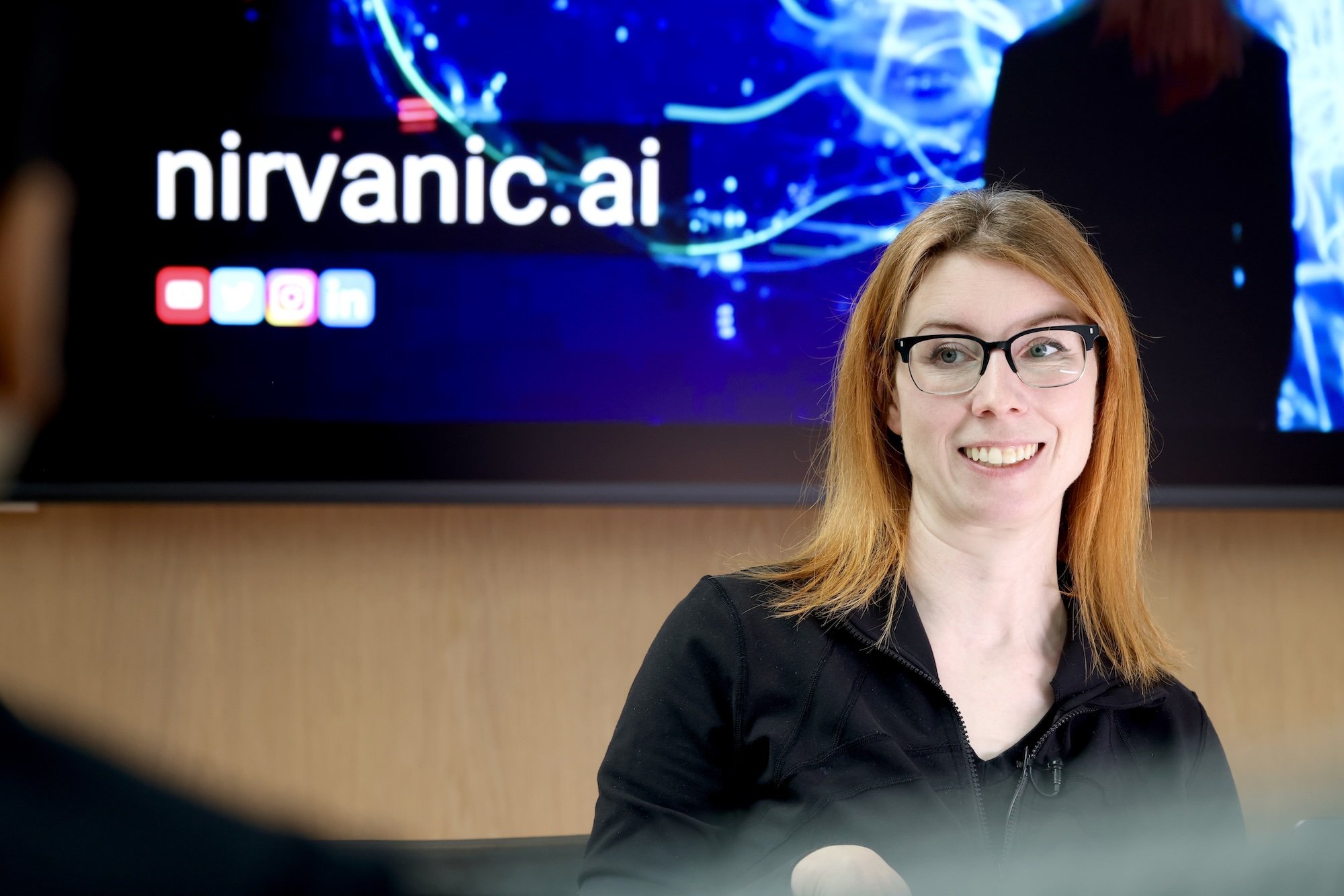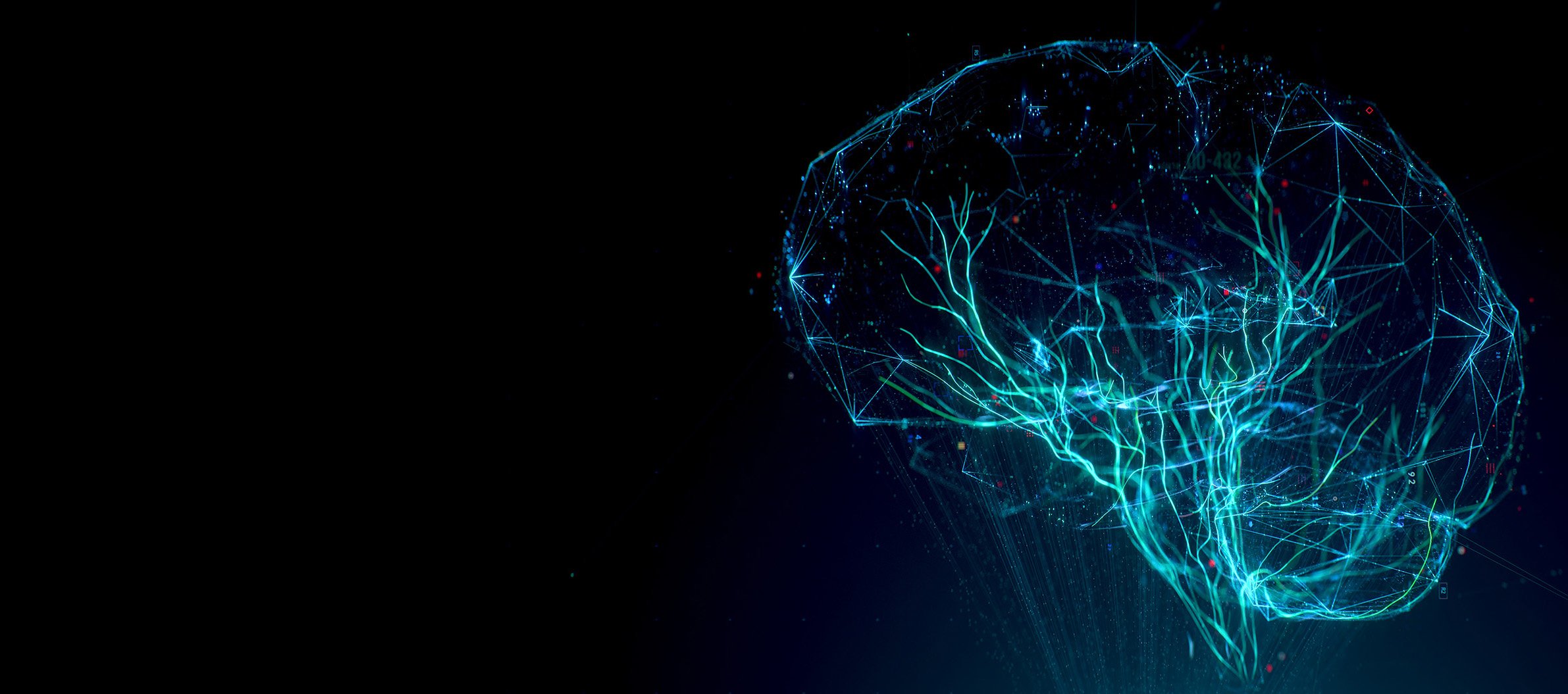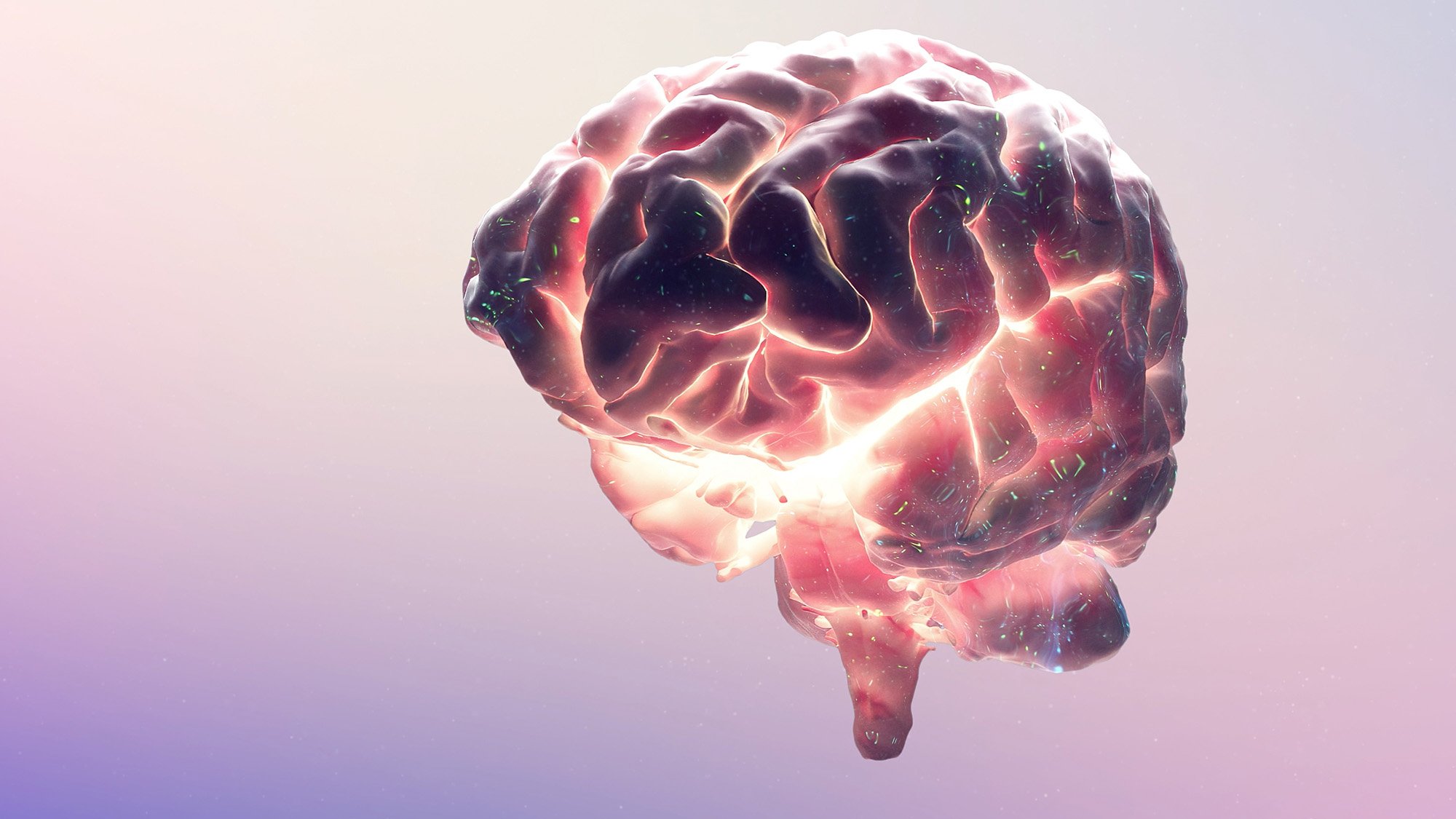Nirvanic’s mission is to engineer conscious AI and robotics. We’re testing quantum conscious agency.

“As a roboticist and a quantum physicist, I find the brain’s ability to make conscious, intuitive decisions a miracle. What if we could harness it?”
Dr. Suzanne Gildert, Nirvanic Founder

ABOUT US
Nirvanic is a quantum-AI firm testing a model of quantum conscious agency with potential widespread application for robotics and artificial intelligence.
We envision consciousness software for general-purpose robotics that can solve present-moment problems instantly, just like people. It’s a step closer to AGI.
Our research involves experimental science with quantum-computed cognition for robots. Our technology plan has four phases: metaphysics, scientific research, engineering, and applications described below.
conciencia
OUR METAPHYSICS
Understanding consciousness remains one of the most profound open questions in science and philosophy.
Why are we self-aware? What does it mean to observe reality, have inner experiences, and a feeling of free will?
Our founder, Suzanne Gildert, has thought deeply about these questions while trying to build artificial general intelligence in humanoid robots, to ready them for our complex social world. Despite technical achievements, she concluded something essential was missing: conscious processing, which enables instantaneous, instinctive decision-making in novel and nuanced scenarios that cannot be trained for in advance. What is life doing that machines cannot?
Inspired by both D'Ariano-Faggin and Orch-OR theories, which propose that biological consciousness arises from quantum processes, Gildert is now exploring if consciousness could emerge from robotic systems run on quantum computation, saying:
“Quantum information really is fundamentally and qualitatively different than classical information processing and it could be a candidate for the definition of something that experiences itself.”
“My belief is that the Universe wants to know itself through experience. It is trying to maximize the amount, variety, and richness of conscious experience.”
Leveraging her background in experimental physics, quantum computing, and AI robotics, she is developing Quantum Conscious Agency Theory (QCAT). The hypothesis is that technological systems might become conscious if they process quantum information in very specific ways, using entanglement of qubits and wave function collapses. Unlike many theories of consciousness, this one is testable and falsifiable with experiments today.
The theory is also teleological—it proposes that physics drives towards rich conscious experiences, even against extremely unlikely odds. Evolution by natural selection may not be enough to explain the emergence of complex intelligent life. QCAT is a form of quantum information panpsychism, suggesting that consciousness is an intrinsic property of quantum systems.
의식
OUR SCIENCE
Nirvanic is investigating if robots running on quantum computation can demonstrate natural conscious agency.
We are now conducting experiments integrating a robot’s sensory-action feedback loop with a quantum state. The sensory inputs and action options are encoded into the qubits of a quantum computer. Upon the collapse of the wave function, the system “chooses” what to do given what it is currently experiencing—looking at unusual patterns, solving problems, etc.. We then compare the quantum “choices” to those made by a digital computer running the same algorithm.
Quantum Conscious Agency Theory suggests we may see our test robot exhibit actions that improve its conscious experience: exploration, curiosity, self awareness, adaption, and coordination with other conscious agents. Our theory proposes that quantum states, when structured in just the right way, could intrinsically provide an internal motivation—what we call a Universal Reward Function—within the system itself. While we have not yet made any scientific claims, this quantum robotics approach may help robots adapt more effectively than “unconscious” approaches, such as state-of-the art large behavior models.
Initial experiments will connect our test robots to adiabatic annealing quantum computers. Subsequent research will also test gate-model systems such as trapped-ion and photonic quantum processors. Consciousness research may represent a new use case for the quantum computing industry.
चेतना

ENGINEERING
If our science is validated, Nirvanic will pioneer a new kind of software for conscious AI and robotics.
AI systems today rely on reinforcement learning where the designers program in its “reward function” — like a score in a video game — that systems use to optimise for an objective. But for complex robotics such as humanoids in general environments, programming such objectives has proven impossible. You cannot give an objective for every unpredictable scenario that our complex world presents. Data-driven approaches based on millions of training examples still routinely fail on edge cases. It may be the main reason why humanoid robots are not widely seen in the marketplace.
The systems we propose would instead operate in the present moment, guided by the dynamics of quantum computation, rather than relying on pretrained models or scripted behaviors. This would enable physical agents to perceive, decide, and act with real-time agency—adapting to novel situations through conscious processing rather than data recall.
We envision building robot minds that incorporate quantum cognitive loops: interfaces between quantum processors and a robot’s sensors, actuators, and memory. These feedback loops would allow quantum states—entangled, probabilistic, and analog—to participate directly in the robot’s perception-action cycles. The result could be a leap beyond classical AI: embodied machines that don’t just simulate awareness, but may begin to experience it.
This vision draws on the career of Dr. Suzanne Gildert, Nirvanic’s founder. A physicist and serial inventor, she previously co-founded Kindred AI and Sanctuary AI, where she designed cognitive architectures for humanoid robots and oversaw their assembly. Having experience in both academic science and technology startups, she is uniquely equipped to lead this bold engineering frontier.
A quantum circuit designed by Nirvanic
bewusstsein

APPLICATIONS
Conscious AI and robotics represent a potential new category of intelligent systems with awareness, adaptability, and intrinsic motivation.
Nirvanic’s work suggests the possibility of AI that not only senses and responds to the world, but also experiences it. Should such systems prove viable, they may offer advantages in environments where conventional AI struggles—particularly those requiring real-time adaptation, autonomy, or ethical sensitivity.
Conscious Robotics
If inner experience can be engineered, robots with emotional responsiveness and evolving cognitive models could assist in caregiving, education, or collaborative settings—not through preprogrammed scripts, but through lived interaction.
Ethical AI Alignment
A system capable of subjective experience may offer new ways to approach alignment—grounding behavior in internal motivations rather than externally imposed goals. This remains speculative, but potentially transformative.
Space Robotics
Quantum agents could one day support autonomous decision-making in deep space missions, where uncertainty, communication delays, and novel conditions limit the usefulness of conventional automation.
Human-AI Interfaces
In the future, quantum-conscious agents might serve as the basis for new kinds of brain-computer interfaces—enabling shared experience or bidirectional understanding between biological and synthetic minds.
Consciousness Research
Quantum AI agents may eventually serve as testbeds for scientific and philosophical theories of mind—providing an experimental bridge between abstract models and observable behavior.
cознание

Follow our Substack and social media
意識
“I regard consciousness as fundamental. I regard matter as derivative from consciousness.”
—Max Planck, Nobel physicist
“We have a will which is able to determine the action of the atoms probably in a small portion of the brain, or possibly all over it. The rest of the body acts so as to amplify this."
—Alan Turing, computing pioneer
“Consciousness is not just a computational process; it involves something much deeper.”
—Sir Roger Penrose, Nobel physicist
“Consciousness emerges from quantum vibrations in microtubules inside neurons, which regulate brain function and connect it to deeper orders of the universe."
—Stuart Hameroff, anaesthesiologist
“The overall number of minds is just one. It is merely the same self that looks out through all the eyes.”
—Erwin Schrödinger, Nobel quantum physicist











